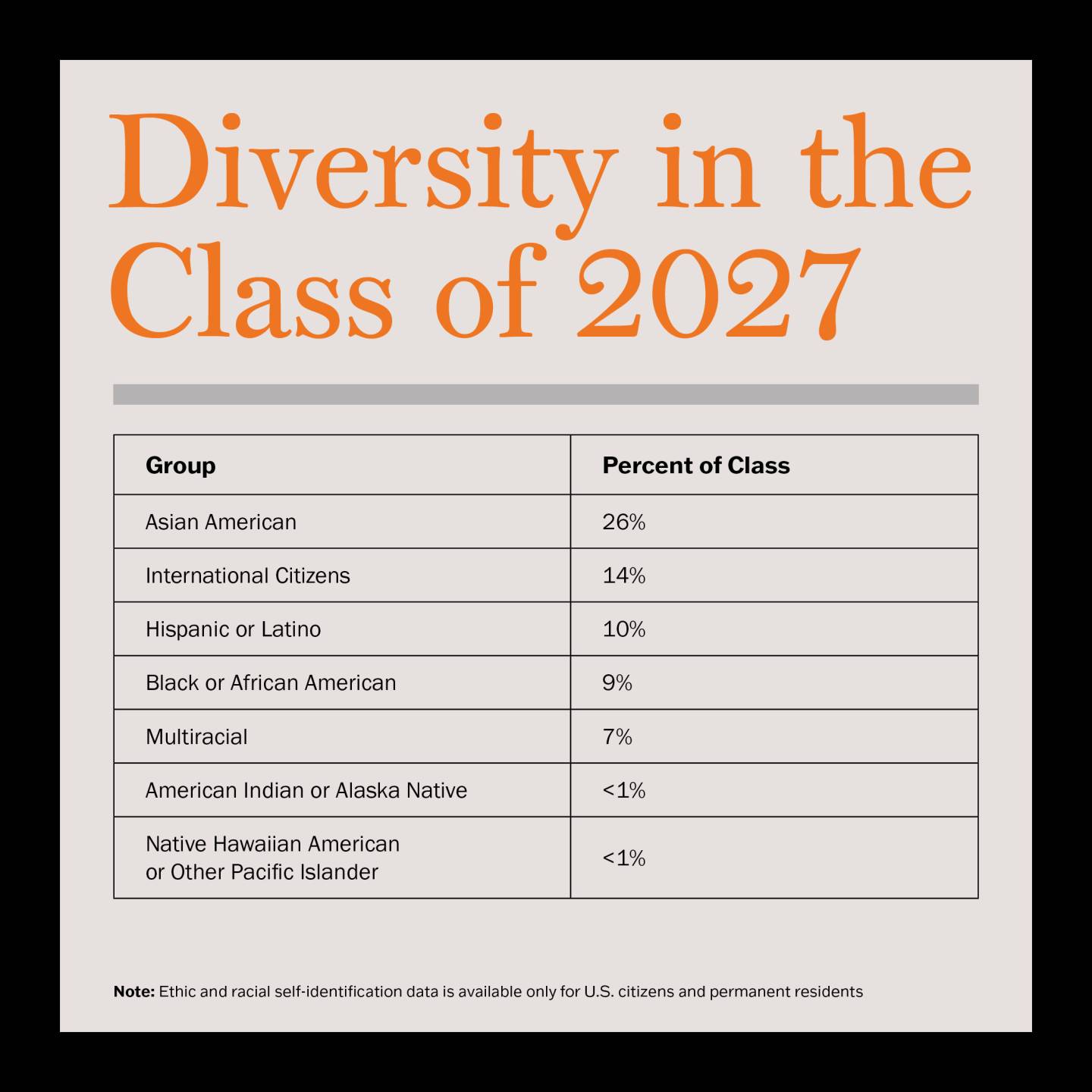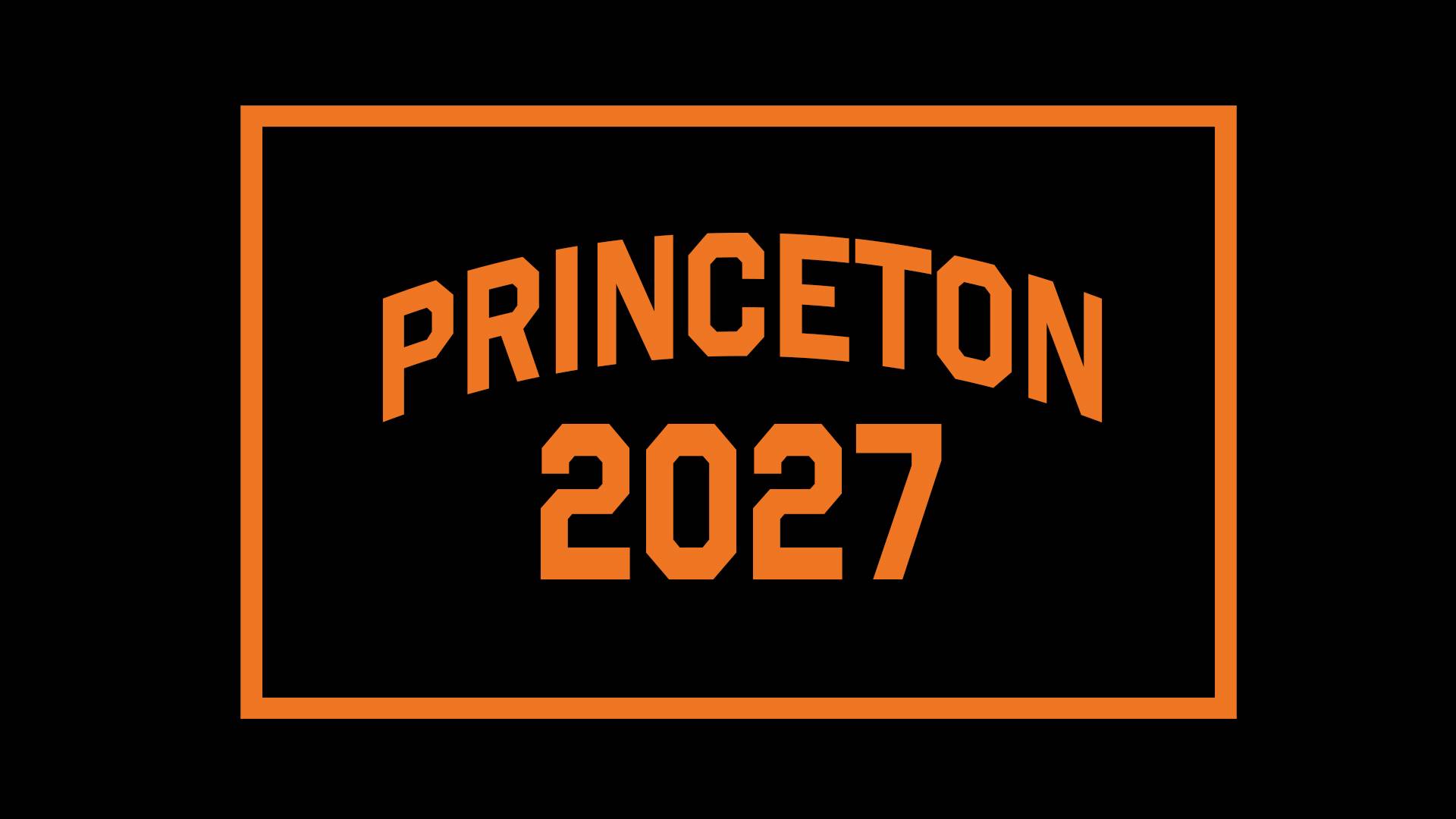Princeton welcomed 1,366 first-time, first-year members of the Class of 2027 for the opening of the 2023-24 academic year.
The students represent 49 states as well as Washington D.C., Guam and Puerto Rico. This year’s class has international citizens representing 64 countries such as Afghanistan, Guatemala, Hungary, New Zealand, Portugal and Zimbabwe.
The Class of 2027 includes 17% who are first-generation college students and 13% who are the children of alumni. Sixty-six percent of the incoming students qualify for financial aid; 22% of the class are lower-income students eligible for federal Pell Grants.

View an accessible version of this table.
The average financial aid grant for the class is approximately $70,000 per year, which covers the cost of tuition. Princeton’s financial aid program, made possible by the University endowment and the sustained generosity of alumni and others, is known as one of the most generous in the country.
The University’s new financial aid model means that most families with incomes up to $100,000 a year now pay nothing for their student to attend Princeton, and many families living in the U.S. with incomes up to and even beyond $300,000 will receive grant aid, including those at higher income levels with multiple children in college.
Nearly a quarter of the first-time enrolled students indicated an interest in Princeton’s bachelor of science in engineering degree on their applications, and 69% indicated an interest in the University’s bachelor of arts degree. The remainder of students indicated they are undecided.
Dean of Admission and Financial Aid Karen Richardson, a 1993 Princeton graduate, welcomed the Class of 2027 to campus. “We look forward to watching this community of accomplished students contribute to the learning environment in meaningful ways,” she said.
Undergraduate expansion
The Class of 2027 is the second in a four-year expansion that will increase Princeton’s undergraduate student body by 500 students. The enrollment increase, paired with Princeton’s generous, no-loan financial aid program, will ensure that more talented students from all backgrounds and sectors of society have access to a Princeton education.
Last fall, the University opened Yeh College and New College West to accommodate the growing student body. The University’s eighth residential college, Hobson College, is currently under construction.
Transfer student expansion
Thirty-three transfer students also joined the Princeton undergraduate community this fall. The group is the sixth transfer cohort since the program’s reinstatement beginning with the fall 2018 enrollment, and the second in a multi-year expansion of the transfer program that began in fall 2022.
The program’s primary focus is to enroll community college and military students. This year, 24 of the enrolling students transferred from community colleges, and 21 have actively served in the U.S. military, with four branches of service represented.
Prior to Princeton, transfer students attended several community colleges in New Jersey, including Bergen Community College, the County College of Morris, Mercer County Community College, Ocean County College, Raritan Valley Community College and Sussex County Community College.
Supporting first-generation college and lower-income students
Before the academic year began, some incoming students participated in the Freshman Scholars Institute (FSI) program this summer. FSI was held on campus and virtually and offered students, including from first-generation and lower-income backgrounds, the opportunity to experience Princeton’s intellectual, co-curricular and social life prior to the start of the fall semester.
FSI is one of many programs offered through the Emma Bloomberg Center for Access and Opportunity to empower all students to successfully navigate the University’s many resources to achieve their professional, personal and scholarly goals, and to become active leaders on campus and in the larger world.
The Office of Admission also works with college access groups that support students, including those from lower-income and first-generation backgrounds, such as QuestBridge, Leadership Enterprise for a Diverse America (LEDA) and the Princeton University Preparatory Program (PUPP). The Office also partners with transfer support networks and veteran and military programs, including Service to School and the Warrior-Scholar Project, in preparing U.S. military veterans and service members for higher education. The University is a member of the American Talent Initiative (ATI), a national effort to expand college access and opportunity for talented lower- and moderate-income students.






